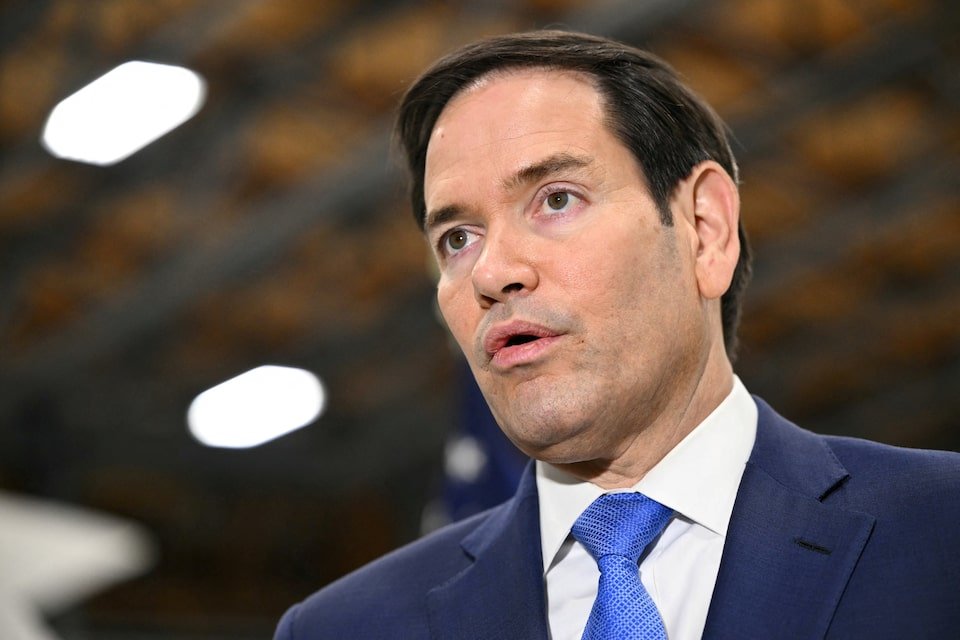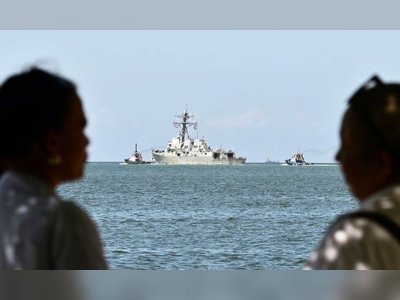
Rubio Refutes UK Intelligence-Sharing Suspension Amid US Boat-Strike Row
United States Secretary of State insists UK has not halted intelligence cooperation despite media reports over Caribbean drug-vessel strikes
United States Secretary of State Marco Rubio on Wednesday forcefully rejected recent media reports suggesting the United Kingdom had suspended intelligence-sharing with the U.S. over boat strikes in the Caribbean.
Speaking after a Group of Seven (G7) foreign ministers’ meeting in Canada, he labelled the claims a “false story” and reaffirmed the strength of the U.S.–UK intelligence partnership.
The reports, first published by a major U.S. news outlet, asserted that Britain had suspended the flow of intelligence on suspected drug-trafficking vessels following a series of lethal U.S. military strikes.
Rubio said no British official had raised such a concern with him, nor was the matter raised at the G7 session.
“Nothing has changed or happened that has impeded in any way our ability to do what we’re doing,” he said.
The controversy surrounds a campaign of U.S. strikes against vessels alleged to be carrying narcotics toward the United States, operations which the Trump administration has defended as necessary to counter what it calls “narco-terrorist” organisations.
Some allies and United Nations experts have raised legal questions about the operations, prompting a broader diplomatic ripple.
While the UK government declined comment on intelligence-sharing specifics—citing longstanding policy of no comment on such matters—a correction in reporting noted there was no confirmed UK move to suspend cooperation.
Sources attributable to the British side have yet to publicly acknowledge any formal halt to intelligence exchanges.
For now, the U.S. maintains that its intelligence flows remain uninterrupted and that its Caribbean operations proceed in partnership with key allies including the UK. The rebuttal from Rubio seeks to nullify what Washington sees as a distracting and misleading narrative, even as broader questions about the lawfulness of the maritime campaign linger.
Speaking after a Group of Seven (G7) foreign ministers’ meeting in Canada, he labelled the claims a “false story” and reaffirmed the strength of the U.S.–UK intelligence partnership.
The reports, first published by a major U.S. news outlet, asserted that Britain had suspended the flow of intelligence on suspected drug-trafficking vessels following a series of lethal U.S. military strikes.
Rubio said no British official had raised such a concern with him, nor was the matter raised at the G7 session.
“Nothing has changed or happened that has impeded in any way our ability to do what we’re doing,” he said.
The controversy surrounds a campaign of U.S. strikes against vessels alleged to be carrying narcotics toward the United States, operations which the Trump administration has defended as necessary to counter what it calls “narco-terrorist” organisations.
Some allies and United Nations experts have raised legal questions about the operations, prompting a broader diplomatic ripple.
While the UK government declined comment on intelligence-sharing specifics—citing longstanding policy of no comment on such matters—a correction in reporting noted there was no confirmed UK move to suspend cooperation.
Sources attributable to the British side have yet to publicly acknowledge any formal halt to intelligence exchanges.
For now, the U.S. maintains that its intelligence flows remain uninterrupted and that its Caribbean operations proceed in partnership with key allies including the UK. The rebuttal from Rubio seeks to nullify what Washington sees as a distracting and misleading narrative, even as broader questions about the lawfulness of the maritime campaign linger.









